How does the internet make us more (or less) healthy, connected, secure, informed, educated, empowered, creative, and globally competent? Where do equity, ethics, and justice fit into the “tangled web” and promises of today’s online universe, especially for middle, high school, and community college students? How can teachers engage with these challenges to find opportunities to advance learning for youth who think and play, and increasingly live, online?
These questions were at the core of Harvard’s sixth annual Global Studies Outreach summer workshop in early August. The workshop brought together 35 educators from across the country to focus on this year’s theme of “The Internet: Tangled Webs, Global Promise.” This year’s multidisciplinary speakers explored questions of politics, history, security, ethics, psychometrics—and more.
A major focus of each of the four days was on practical ideas to inspire and improve classroom learning. On behalf of Faculty Director Sue J. Goldie, GHELI’s Nina Bhattacharya and Susan Holman provided an interactive sneak peek into the Incubator’s online repository, a curated collection of global, open-access resources and tools for educators and learners looking to integrate multidisciplinary perspectives into the classroom. “The resources appeal to a broad range of levels and learners and represent contributions from multiple stakeholders,” said Goldie in her introductory video.
Other speakers also explored the practical intersections of the internet and education: Harvard’s Liz Dawes Duraisingh shared the model of Out of Eden Learn, a platform and curricula that aims to build intercultural dialogue in schools across the world. Stephanie Gottwald and Tinsley Galyean of Curious Learning, a local non-profit that was developed within the MIT Media Lab, described their work developing, prototyping, and iterating apps that enable help children in resource-limited settings learn to read in their home language. Software engineer and architect Dave King explored the vision of Exaptive, a team of thinkers who work with companies to tease out and develop serendipitous ideas at the interface of technology and big data, encouraging “creative friction” and community connectivity—vital ingredients for any classroom. Stefano Chinosi, Director of Strategic Innovation at the Andover Public Schools, led the workshop on a “virtual” visit to Mexico City through the Shared Studios portal project, which creates interconnected environments around the world to build global conversations. This year’s workshop also included a visit to the MIT Media Lab.
In addition to learning from the academics and practitioners invited from across the globe, participating teachers also had the opportunity to discuss what they learned at length with their peers, often through the use of guided pedagogical exercises. Many of these pedagogies—specifically the idea of education for global competence—draw on work developed at Project Zero, a research group at the Harvard Graduate School of Education. Alejandro Cruz, the principal at the Panamerican School, a middle school in Monterrey, Mexico, appreciated the workshop because it allowed him to be a learner first, and a teacher second.
By day four, teachers set out for home tired but enthusiastic and encouraged. Many came back this year, inspired by their experiences in previous years, where themes ranged from water to mapping, journalism, migration, and urbanization. First launched in 2013, Global Studies Outreach at Harvard is a cross-university collaboration among centers and programs that share a commitment to conduct educational outreach to help the public, especially K-12 teachers and students, better understand the complex world in which we live. In addition to the Global Health Education and Learning Incubator at Harvard University, GSOC is co-sponsored by the Davis Center for Russian and Eurasian Studies, the Center for Middle Eastern Studies, the Center for African Studies, the Asia Center, and Harvard Divinity School’s Religious Literacy Project.
Learn more about last year’s Global Studies workshop on urbanization.
